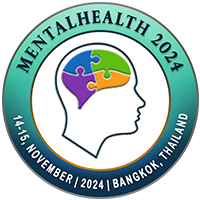
Maja Simonovska
University at buffalo, MacedoniaTitle: Transgenerational victimization and transgenerational victimism: Definitions, modes of transmission and consequences
Abstract
The transmission of trauma from one generation to another is a phenomenon that is increasingly discussed in scientific literature, both in the field of social psychology, as well as in psychotherapy. The specificity of transgenerational victimhood is reflected in the fact that trauma is transmitted to the offspring who were not directly exposed to the traumatic event, and the effects thereof are manifested not only on an individual but also on a group level. In other words, the transmitted trauma affects the mental health of the offspring, the way they behave in certain situations and cope with the everyday challenges. In addition to transgenerational victimization, there are several other terms which attempt to explain this phenomenon. They include transgenerational trauma, cultural trauma and historical trauma. While there is overlap between them, all address specific aspects of this phenomenon. In a similar way the term transgenerational victimhood, which tries to explain the way collective victimization is transferred to the next generations, can be seen in the concepts of inclusive victimhood, inclusive victim consciousness, common victimhood, exclusive victimhood, exclusive victim consciousness, perpetual in-group victimhood orientation etc. This phenomenon is complex and until now it received little attention from the scientific community, however scientific research is currently starting to receive focus both in the field of social psychology and psychotherapy. Researches in both of these disciplines are developing simultaneously, and it will be meaningful for insights and conclusions to be shared among them.
Biography
TBA

